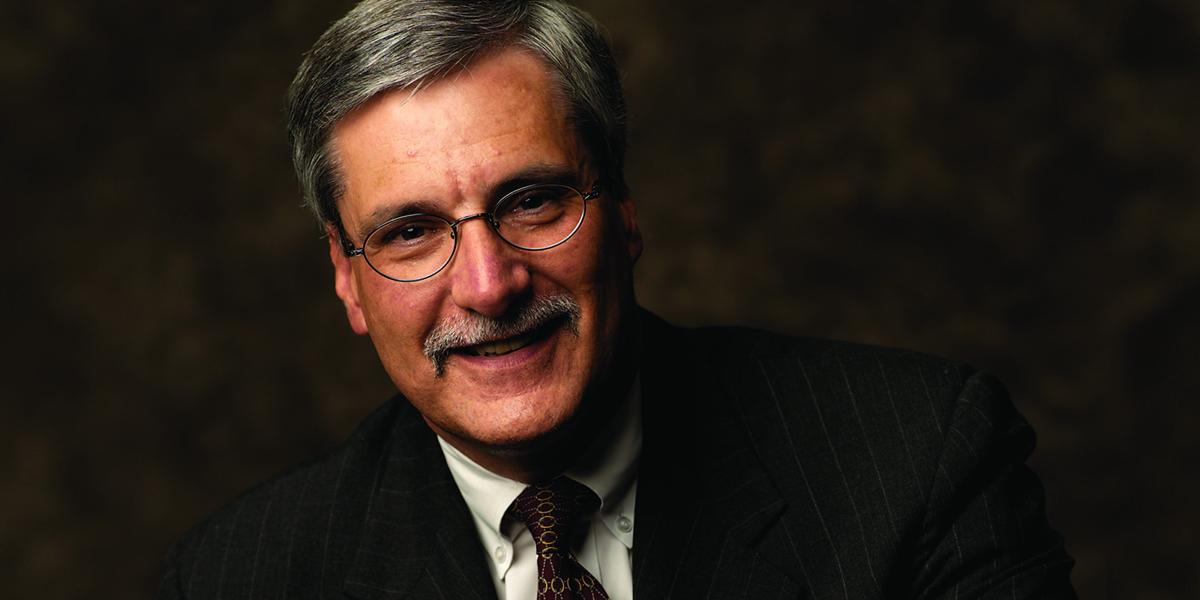Open Mike: PEPFAR: Good to Great
The president's new PEPFAR proposal presents a great opportunity to increase the program's strengths and build for the future.
Now is the time to get it right.
The President's Emergency Plan for AIDS Relief (PEPFAR), a $15 billion program, has supported the care of 2.4 million people with AIDS, saving them from certain death. President Bush's initiative and the American people's generosity should be commended. Having met South Africans and Ugandans who are alive because of the program, I have seen firsthand the difference PEPFAR is making.
After a February 2006 trip to Africa, I argued in this column that PEPFAR must be continued. Now, I want to tell you how it can be improved. Almost five years into its lifesaving mission in sub-Saharan Africa, the program is due for reauthorization by the U.S. Congress. This presents a great opportunity to increase PEPFAR's strengths and move the program beyond its initial triage approach and into a second phase that builds for the future.
Where does PEPFAR fall short? First, it is not creating a public health or clinical care infrastructure. When the program ends—and it will end some day—its staff will pack up and go home. The United States needs to do a better job of leveraging PEPFAR to create health care systems that will improve the health of Africans, regardless of their HIV status. Upon its demise, PEPFAR should leave countries better equipped than when it started.
Second, PEPFAR is not spending taxpayer dollars wisely. Currently, about 7 percent of PEPFAR funding goes to abstinence-based programs. According to the Institute of Medicine, there is no evidence that abstinence-based interventions prevent transmission of HIV. If the American people are going to donate billions of dollars to save lives in Africa, then they—and the Africans whom PEPFAR is charged to help—deserve a program that is as efficient and effective as possible.
Third, it does not support research. PEPFAR is the equivalent of an emergency relief "airdrop" where you fly over and drop food (lifesaving drugs in this case) to help desperate people. That's important when you have an immediate crisis, when people are dying. But we all know that HIV/AIDS is not a short-term challenge. We must start thinking about the long term. We need to know that the drugs are getting to the right places, that the treatment protocols are not leading to drug resistance, that optimal drug distribution methods are being employed and so on.
What can be done to tackle PEPFAR's shortcomings? The current HIV crisis in sub-Saharan Africa exists because of social, economic and political issues—one symptom of which is a lack of functioning and equitable health care systems. Most countries there have dismal health problems besides HIV. Additionally, because PEPFAR pays its staff well, it has created an internal "brain drain," drawing skilled workers away from primary care and other sectors of the health system. And, as countries develop economically, they have to prepare for the "epidemiologic transition"—the shift from infectious diseases like cholera to chronic diseases like hypertension that are common in developed countries. To help them survive this double-whammy of disease, we need to assist in the creation of a health care infrastructure. Since health care systems must be led by local people, we need to train pharmacists, nurses, physicians and epidemiologists in order to secure population-wide health.
The president has proposed doubling the PEPFAR budget to $30 billion. A modest reallocation of funds can achieve dramatic results in African health. Here's what I propose:
- 2 percent of the budget should fund research to investigate the effect of PEPFAR's HIV therapy on the spread of HIV and on drug resistance, and to test new drug regimens.
- 2 percent should fund health services research to explore new and effective ways of building health systems in the developing world. Such systems should lay the foundation for confronting other serious health issues such as neonatal and maternal mortality and the coming epidemic of chronic disease.
- 2 percent should fund the education and training of Africans in public health, medical and allied health fields because, ultimately, Africa's problems can only be solved by Africans.
In all, this 6 percent of the $30 billion proposed by the president for the next phase of PEPFAR would be $1.8 billion. Taking this small percentage from the abstinence portion of PEPFAR monies will not reduce drug delivery. The NIH's Fogarty International Center can administer these initiatives because it already has the mechanisms to peer-review proposals, monitor programs and evaluate results.
In PEPFAR, our country has decided to do something incredibly generous. Now, let's do it right.
